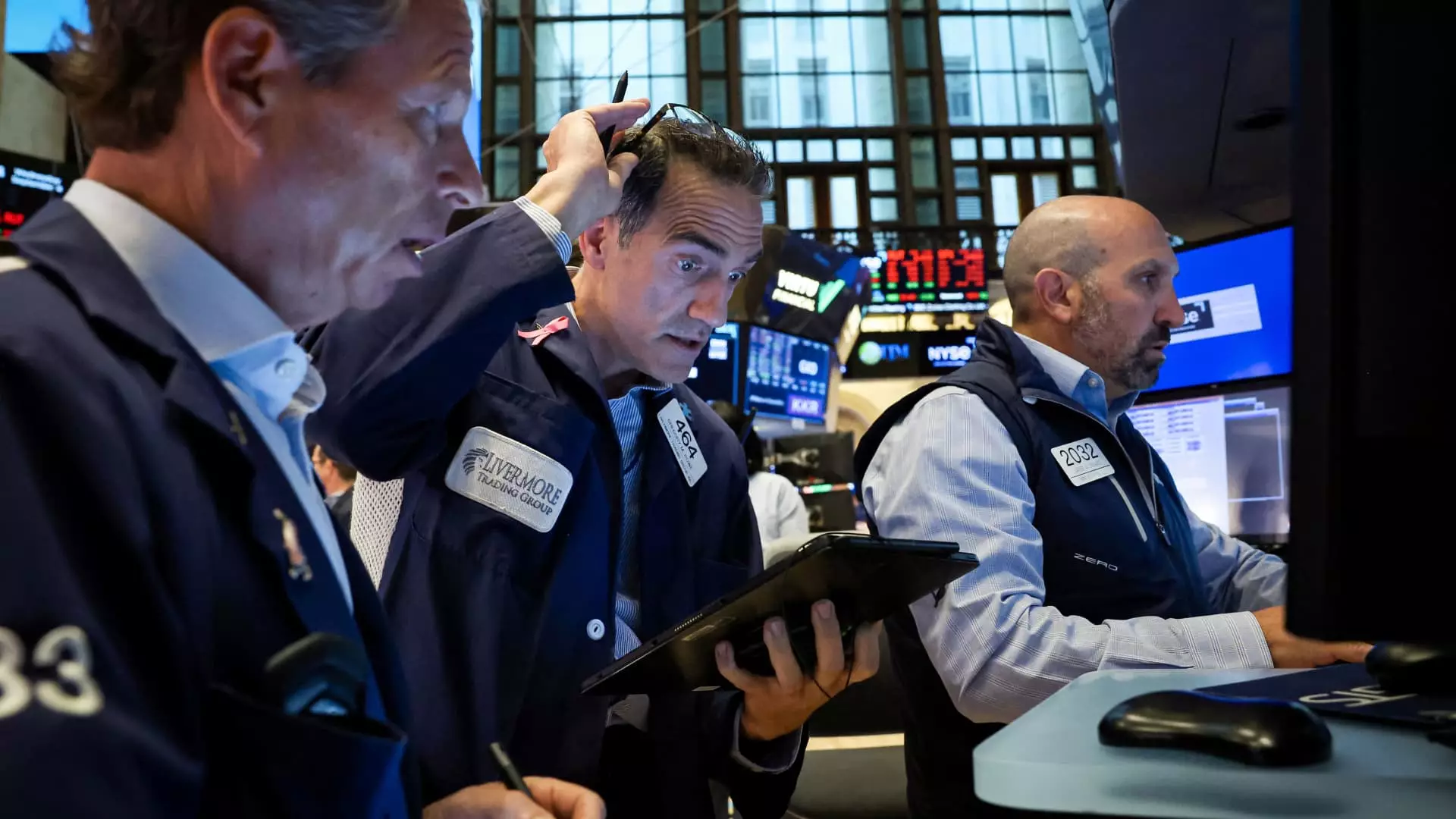The stock market has encountered a wave of fluctuations recently, exhibiting its volatile nature since the Club’s last Monthly Meeting in August. While major indices like the S&P 500 have noted a respectable increase of 1.8%, the upward trajectory has been anything but smooth. The Dow Jones Industrial Average and the Nasdaq Composite showed even more pronounced advancements at 2.1% and 0.9%, respectively, yet the situation remains intricate with numerous contributing factors influencing market behavior.
The Dual Impact of AI and Federal Reserve Actions
Investor sentiment has been significantly swayed by uncertainties surrounding the sustainability of the generative artificial intelligence (AI) boom. As expectations for AI advancements diverge, questions surrounding their long-term viability pose a risk to market stability. Furthermore, Wall Street’s fluctuations are heavily tethered to the Federal Reserve’s next policy decisions, which can either invigorate or depress market dynamics. A notable incident was the most recent Friday, where the S&P 500 recorded its unimpressive weekly performance since March 2023, primarily due to a disappointing August jobs report and a notable drop in Nvidia’s stock. This was juxtaposed by Nvidia recovering substantially in the week that followed, highlighting the market’s oscillating nature.
Amidst these challenges, September has begun on a rocky note after a streak of four successive months of gains for the S&P 500. Despite the turmoil, the Club has strategically navigated this volatility by adjusting its holdings. For instance, shares in Eli Lilly and Procter & Gamble were reduced, and Estee Lauder was entirely sold off due to its struggling position. In contrast, investments were made in promising companies like Dover, which stands to benefit from the AI boom, and Nextracker, despite its observable challenges. Recently initiated stakes in Home Depot on September 4 symbolize a proactive approach in adapting to shifting market conditions.
Pressure Towards Defensive Investments
The market’s recent unease has driven investors to gravitate towards more defensive sectors, indicating a desire for reliability amidst unpredictable movements. Companies with robust balance sheets that exhibit resilience to potential recessionary pressures are becoming increasingly attractive. Abbott Laboratories and TJX Companies emerged as prime examples of top performers, illustrating how value-driven companies can thrive even in testing times.
Despite facing challenging market conditions, these names have demonstrated an ability to capture investor attention and deliver solid results. Their performances serve as benchmarks illustrating the current market sentiment—investors are pivoting towards stability and consistent returns while bracing for potential downturns.
Analyzing the recent successes of various stocks reveals insights about market dynamics and investor preferences. Notably, Best Buy has surged by 17.7% since the last Club meeting. The stock received a significant boost following dovish remarks from Federal Reserve Chair Jerome Powell during the annual Jackson Hole Economic Symposium. As lower interest rates spur activity in the housing sector, demand for Best Buy’s electronics and home appliances is likely to rise. Earnings reports would later confirm these expectations, as evidenced by the notable increase in stock value prompted by strong quarterly results.
Amazon, too, has shown an 8.5% uptick, fueled by bullish evaluations from investment firms such as JPMorgan and Goldman Sachs who fondly labeled it a top internet stock choice. With opportunities emerging in economic uncertainty, analysts emphasize Amazon’s leadership in leveraging shifts in consumer spending patterns. The company’s focus on affordable pricing and efficient delivery systems positions it favorably amidst changing economic climates.
Further adding to the narrative, TJX has reported an 8% increase following a commendable earnings report that beat expectations, reinforcing its status as a recession-resilient retailer. Meanwhile, Advanced Micro Devices has rebounded effectively, owing much to optimistic trends in demand for chips and insightful updates from key partners. The stalwart performance of Abbott Laboratories underscores the health sector’s bullishness as it innovates with new products, standing to benefit from the influx of capital into defensive strategies.
The stock market’s complex landscape continues to evolve, challenged by external pressures, yet offering opportunities for calculated investments. Active adjustments in portfolio strategy, highlighting defensive holdings alongside promising growth stocks, may help investors navigate through uncertain times. As markets grapple with the dual impact of regulatory shifts and technological advancements, staying informed and flexible remains paramount for successful investing. Investors must not only focus on potential returns but also cultivate a keen awareness of the broader economic indicators that govern market movements.

